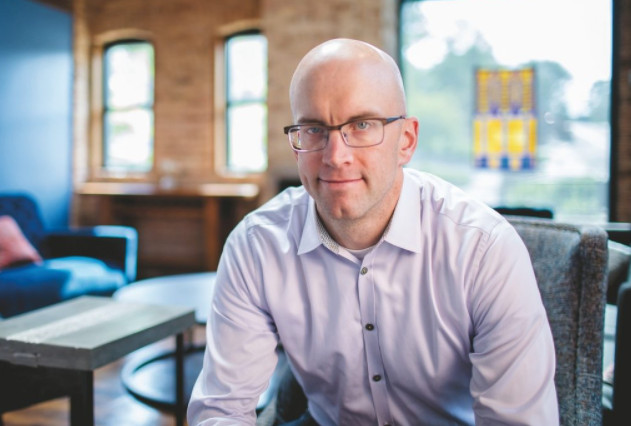The False Self Series, Part 6: Beating Myself Up about the Past
I recently listened to an Emotional Healthy Leader Podcast episode by Pete Scazzero (The September 6 episode, Silencing the Seductive Voice of Your False Self) that greatly impacted me. In the episode, Pete said, “one of the most destructive temptations leaders face is living and leading from the veneer of the false self.” He then listed ten examples of how this can happen.
These examples made sense to me — and I think they’ll resonate with you too. In the upcoming weeks, I’ll talk about all ten. I am doing this because overcoming the false self is the best way to head into 2023. Leadership is about doing things with and through other people, so leading yourself past your false self is step one to leading effectively.
The False Self Series, Part 6: Beating Myself Up about the Past
A few weeks ago, Sarah and I were watching the show “Yellowstone” when one of the main characters, Rip, said something that applies to today’s topic:
“People torture themselves about the past, which is why I focus only on today and the future.”
[paraphrase of the original quote from episode 4 of season 5, emphasis mine]
A Cowardly Practice
Beating yourself up about the past is one of those things in life that feels honorable, but it is anything but honorable. I argue that it feels honorable simply because it holds one accountable for past mistakes. But it does so in an unhealthy way, hence the “beating yourself up” part. It is actually cowardly. It is cowardly because, like a bully picking on weaker kids in the playground, one does not fight back against themselves. They just take it.
How do I know? Because I take it. When I tell myself how awful I am for missing a short putt, coveting something new, or messing up during a talk, I just take it.
Those are all in the present, and we’re talking about the past in this post, so what’s the connection? I’ve discovered that beating yourself up is a “club” used for past, present, and future. The most vicious kind of self-hatred is beating yourself up over the past because you can’t do anything about it.
You can still do something about the present — for example, I could make the next putt, become generous, or perform better in my next talk. But you can’t change how you treated so and so your senior year of high school. There is no way to improve upon that now.
Improvement Never Comes from Shame
Regret is present because, to a certain degree, I am living out of my “disappointed self,” meaning I am not the person I aspired to be. Said bluntly, when I look back, I see evidence of the disparity between my authentic and aspirational self. This leads me to live from a false self that shames itself in hopes of improvement. But improvement never comes from shame, does it?
The authentic self starts with one word: acceptance. It is the realization that you are who you are. Your past is part of this, for better or worse. So as great as Rip’s advice is, denying the past is not the answer because it also leads to a false self. The path forward is to find acceptance in who you are.
Freedom in Acceptance
This might turn some readers off, but this is where I unashamedly turn to Jesus. He knows my past, present, and future. He paid the price for all of us — including you and me! Amazing grace is amazing in that He loves us right now. Yes, He loves us as we are. There is no need to hide. Freedom begins when this identity is accepted.
Most readers are here looking for a leadership nugget, and a pivotal one exists because of what I just shared. Finding identity in Jesus — knowing your fate is already sealed, knowing you are fully accepted and loved — allows you to live freely. That means you no longer have to beat yourself up about the past because you are accepted anyway. You no longer have to worry about the future because your deepest need — the need to be loved and accepted — is assured.
This frees you to live freely. You can do things with and through other people from a place of acceptance rather than from a position of needing to prove your self-worth. This allows you to elevate others because you are not consumed with proving to everyone how much better you are than the person you used to be or the one you continue to beat up. This is extremely pivotal because it allows you to be you.
You are Enough
Jesus says you are enough. This does not mean that life becomes easier, your wildest dreams come true, and you will be financially stable — the Gospel doesn’t promise those things. But it does promise that you no longer have to torture yourself about the past because Jesus died for your past.
The freedom that comes with this empowers you to elevate others. Leadership is never the same again because it is no longer about trying to correct the person from your past. You are already accepted. You can live from your true self and love others.
The False Self Series, Part 6: Beating Myself Up about the Past Read More »







